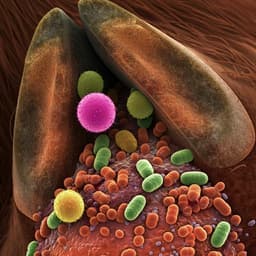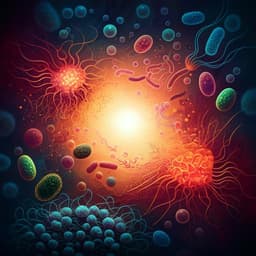
Environmental Studies and Forestry
Organic fertilization co-selects genetically linked antibiotic and metal(loid) resistance genes in global soil microbiome
Z. Liu, R. Ma, et al.
This groundbreaking research by Zi-Teng Liu and colleagues reveals how organic fertilization drives the co-selection of antibiotic resistance and metal(loid) resistance genes in agricultural soils. With a significant increase in antibiotic and metal resistance markers and alarming implications for public health, this study calls for urgent mitigation strategies.
~3 min • Beginner • English
Related Publications
Explore these studies to deepen your understanding of the subject.







